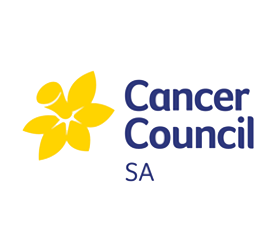Cancer Council SA
Bowel Cancer Screening
South Aussies aged 45 to 49 can now access a free life-saving bowel screening test for the first time
As part of the 2024-25 Federal Budget, South Australians aged 45 to 49 can now participate in the National Bowel Cancer Screening Program and access a free bowel screening test.
People aged 45 to 49 can request their first bowel screening kit by speaking with their GP, calling the National Cancer Screening Register on 1800 627 701 or completing an online form at: www.ncsr.gov.au/boweltest.
This change comes as Cancer Council SA and Preventive Health SA launch a new campaign to encourage eligible South Aussies aged 45 to 74 years to complete the test every two years.
The Get2It campaign will see a $400,000 investment from Preventive Health SA, targeting those who may face more barriers to doing the free test including people living in areas of socio-economic disadvantage, people of Aboriginal and Torres Strait islander descent and multicultural communities.
The campaign will also target regional areas where bowel screening participation rates are at their lowest such as the Limestone Coast, APY Lands, Mid North, Eyre Peninsula, Yorke Peninsula and Murray Bridge.
Cancer Council SA Prevention and Advocacy Manager Christine Morris said, “Bowel cancer kills over 400 South Australians each year, and it often has no symptoms. Screening is the best way to detect bowel cancer, with up to 90 per cent of bowel cancers able to be treated effectively if caught early. That’s why it’s important for people aged 45 to 74 years to participate in cancer screening every two years.”
“The more people who screen, the more bowel cancers we can detect early and more lives are saved. So, don’t put off the chance to complete a bowel screening kit and save your life, even if you feel healthy. Take it to the bathroom straight away and put it somewhere visible or set a reminder.” she said.
The at-home bowel screening test kit can be performed in 10 minutes. It’s quick, painless and clean.
There is no change to the process for people aged 50 to 74. They will continue to receive a letter inviting them to screen and a free kit in the mail.
Marina Bowshall, Preventive Health SA said “From 1 July 2024, more than 100,000 additional South Australians aged 45 to 49 will be able to join the National Bowel Cancer Screening Program and have access to this free lifesaving test for the first time.
More needs to be done to maximise the benefit of prevention and early detection of bowel cancer including for Aboriginal, multicultural, rural and remote communities which is why we have invested in targetting these groups in this campaign”.
“If you are aged 45 to 49, I encourage you to request a bowel screening kit from 1 July 2024. And if you are aged 50 to 74 years and have not received a kit, it is damaged, misplaced or expired, or you are not sure whether you are up to date with your screening, call the National Cancer Screening Register on 1800 627 701”.
For more information about bowel cancer screening visit www.bowelcancer.org.au.
For more information on the bowel cancer screening campaign or to arrange an interview, contact Ashleigh Chapman, Communication Officer, Cancer Council SA on 0418 514 894.
About Cancer Council SA
Cancer Council SA is South Australia’s leading cancer charity working across every aspect of every cancer. Here in SA, every day, we support families affected by cancer when they need it most, speak out on behalf of the community on cancer issues, empower people to reduce their cancer risk, and find new ways to better detect and treat cancer. With your help, we’re getting closer to a cancer free future every day. Find out more at www.cancersa.org.au.
About Preventive Health SA
Preventive Health SA is a new independent government agency for prevention focussing on obesity, tobacco, vaping, mental health, suicide prevention, alcohol and other drugs, and the social determinants of health.
Investment in preventive health measures can help significantly reduce the amount and severity of preventable chronic disease, mental illness and injuries, not only reducing its impact on individuals and communities, but also contributing to building a sustainable health system as a whole. Find out more at www.preventivehealth.sa.gov.au.


Recent Comments